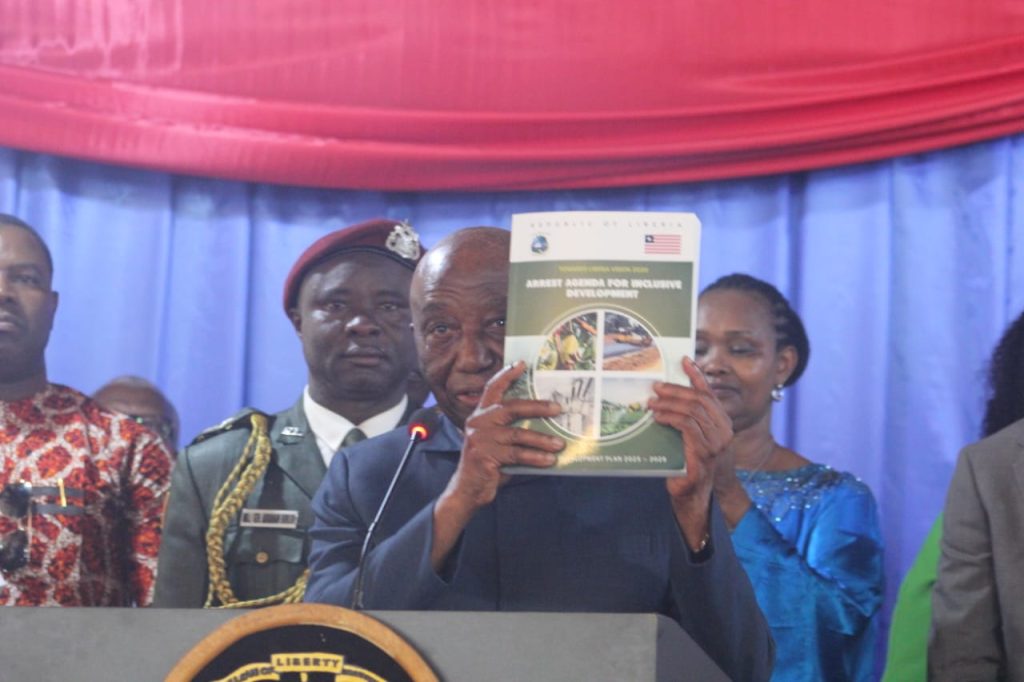Liberia, a nation endowed with abundant natural resources like iron ore, gold, diamonds, and timber, paradoxically finds itself ranked among the world’s poorest countries. This stark contrast between potential wealth and persistent poverty underscores a critical challenge: the nation’s historical dependence on foreign aid and its struggle to translate this assistance into genuine, sustainable economic progress. President Boakai’s recently unveiled five-year development plan, the ambitious ARREST Agenda for Inclusive Development (AAID), seeks to address this challenge by outlining a comprehensive blueprint for growth and transformation. However, the plan’s reliance on donor funding for 70% of its $8.34 billion budget reignites concerns about Liberia’s ability to chart an independent and sustainable development trajectory.
The AAID’s substantial dependence on external financial support raises questions about the long-term viability and sovereignty of the proposed development initiatives. While foreign aid can play a vital role in supporting development, over-reliance on it can create a cycle of dependency, potentially hindering the development of robust domestic resource mobilization strategies and undermining national ownership of the development agenda. This reliance also creates vulnerabilities to shifts in global geopolitical priorities and the potential for conditionalities attached to aid packages. It is crucial for Liberia to strike a balance between leveraging external assistance and cultivating internal capacities for self-sufficiency.
A major impediment to Liberia’s development aspirations, regardless of the funding source, has been the pervasive issue of corruption. The misappropriation of public funds and the lack of accountability have historically hampered the successful implementation of development projects, diverting resources away from essential services and infrastructure improvements. For the AAID to achieve its ambitious goals, addressing this deep-rooted challenge is paramount. Transparency and good governance must be at the core of the plan’s execution, ensuring that allocated funds are utilized effectively and for their intended purposes. Strengthening institutions and promoting accountability mechanisms will be essential for building public trust and creating an enabling environment for sustainable development.
Achieving true economic independence requires a fundamental shift in Liberia’s economic structure. Diversifying away from an overreliance on extractive industries and towards sectors like agriculture, manufacturing, and tourism is essential for creating a more resilient and inclusive economy. These sectors offer the potential to generate employment opportunities, expand the revenue base, and reduce the nation’s vulnerability to fluctuations in global commodity prices. Furthermore, attracting private sector investment, both domestic and foreign, will be crucial for injecting dynamism into the economy and fostering innovation. Creating a favorable investment climate through regulatory reforms, infrastructure development, and skills development initiatives will be key to attracting private capital.
The role of international partners in Liberia’s development journey remains important, but the nature of these partnerships must evolve. Moving beyond a donor-recipient relationship towards collaborative partnerships that prioritize capacity building, knowledge transfer, and technology sharing is essential. These partnerships should be structured in a way that empowers Liberian institutions and promotes local ownership of development initiatives. Focusing on sustainable development goals, fostering innovation, and supporting local entrepreneurship can help Liberia leverage international expertise and resources to build a more self-reliant and prosperous future.
Liberia finds itself at a pivotal juncture. While the ARREST Agenda for Inclusive Development presents a promising vision for the nation’s future, its success hinges on addressing critical challenges like aid dependency and corruption. By prioritizing economic diversification, investing in human capital, promoting good governance, and fostering strategic partnerships, Liberia can unlock its vast potential and build a more sustainable and prosperous future for its citizens. This requires a concerted effort from all stakeholders – government, civil society, the private sector, and international partners – to work together towards a shared vision of a self-reliant and thriving Liberia. The future of Liberia depends on its ability to move beyond aid dependency and embrace a path of sustainable and inclusive development, ensuring that its abundant natural resources translate into tangible improvements in the lives of its people.


